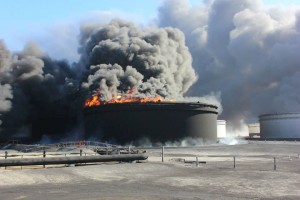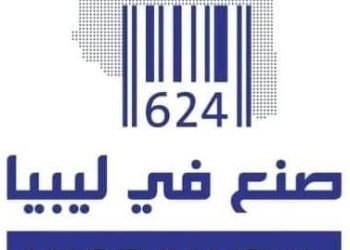By Libya Herald reporter.

Tunis, 21 November 2017:
Waha Oil is looking to replace large sections of its pipelines suffering from corrosion as well as the 12 oil tanks destroyed in 2014 at its terminal in Sidra. However, it lacks the finance to pay for them. As a result, according to Waha chairman Ahmed Ammar, it is looking to alternative means of payment.
Speaking to a business conference in Tunis today organised by the Libyan British Business Council and the British Arab Commercial Bank (BACB), Ammar did not explain what the alternative payment systems might be, whether by oil barter, deferred higher payments or any other means. His sole comment on the matter was that the funding would have to be done in ways different to the traditional payment systems.
Waha had suffered enormous damage since 2011, Ammar said. Its storage capacity at Sirda was down to 1.5 million barrels from the pre-revolution figure of 6 million, he explained. This was a result of tanks being destroyed, first during the revolution itself, then in 2014 when Libya Dawn attacked the terminal. Two fields had also been badly damaged during the attack, he added.
Waha could probably build one or two tanks from its own funding, but not the 12 required.
As to the pipelines, a survey had been carried out in 2009 which indicated corrosion in many places, but the problem had become much worse in the three years since the start of the Libya’s divisions in mid 2014 .
“Many lines need replacement,” he told the conference.
There was no point, he added, trying to increase production if the pipelines were leaking and not fit for purpose. They had to be repaired first.
Nonetheless, noting that Waha production is currently 260,000 barrels a day, the aim was to increase this 600,000 b/d, Ammar said. “We require international companies to help us to enhance our production in future,” he stressed.
He acknowledged that foreign companies were hesitant to become involved in Libya because of security issues. As a result, only a few were in the country and most of the contracts aimed at increasing production had been put on hold or suspended. But, he stressed, security was less of an issue than before.
“Waha’s door is open,” he said. “Everyone is welcome.”
Foreign service companies that did not start talking to it now about development projects, he warned, risked be left behind when conditions improved.
“If you don’t get here now you will be last on the list [in the future],” he said.







